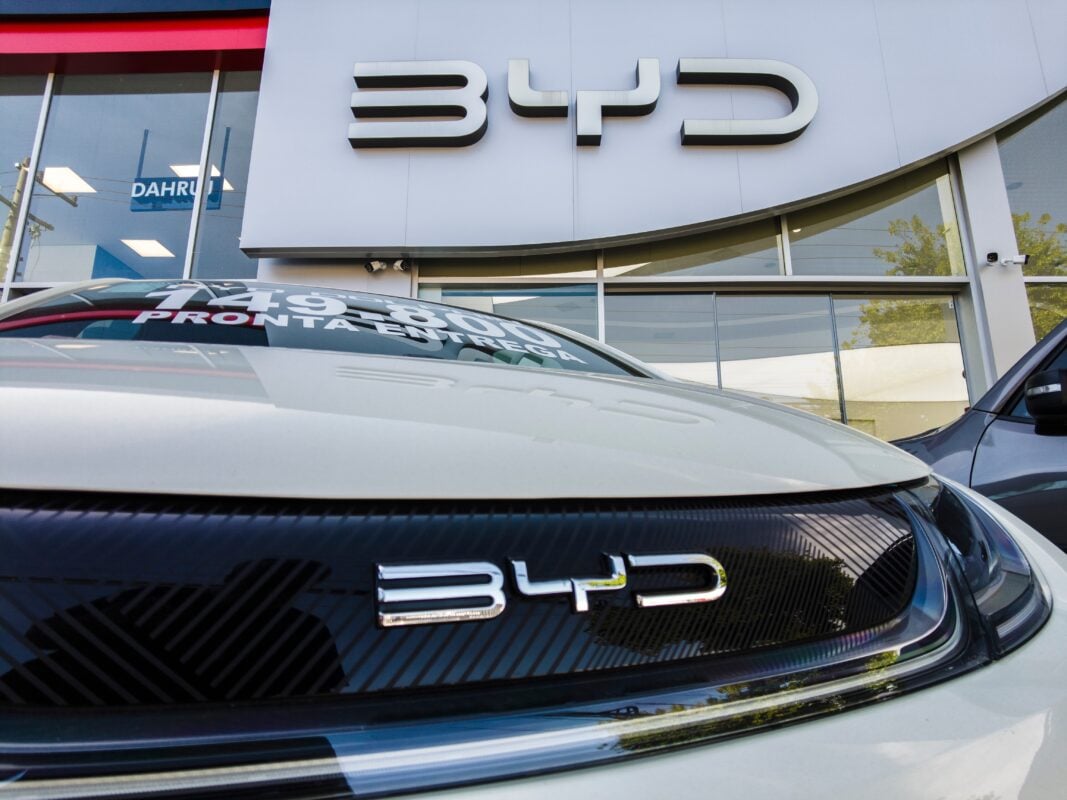TLDRs;
Contents
- BYD plans to open seven more showrooms in Saudi Arabia by late 2026
- The company aims to sell over 5,000 EVs in the kingdom this year
- Tesla’s recent entry into Riyadh sparks fresh competition in the region
- Saudi Arabia’s EV market remains small but poised for rapid growth
Chinese electric vehicle giant BYD is intensifying its presence in Saudi Arabia with an aggressive expansion plan that aims to reshape the nascent EV landscape in the kingdom.
Having entered the Saudi market in 2024 with three showrooms, BYD now plans to add seven more by the second half of 2026. The move comes as competition stiffens, especially following Tesla’s much-anticipated arrival in April with its first showroom in Riyadh.
Sales Ambitions Rise Amid Infrastructure Gaps
BYD is targeting over 5,000 vehicle sales in the country this year, a bold move considering electric vehicles currently make up just over 1% of total car sales in Saudi Arabia.
The company’s long-term strategy seems to be banking on the kingdom’s Vision 2030 initiative, which sets an ambitious target of 30% EV adoption by the end of the decade. However, hurdles remain. The infrastructure needed to support mass EV adoption is still underdeveloped.
Saudi Arabia had only 101 charging stations as of 2024, though government plans aim to increase that number to 50,000 within six years.
Tesla Sparks Competitive Tensions in the Gulf
Tesla’s entry into the Saudi market brings new dynamics to the competition. With expectations to sell between 10,000 and 15,000 vehicles over its first two years in the country, Tesla is seen as both a threat and a validation of the market’s growth potential.
BYD, however, may have the first-mover advantage. Its early roots in the region, along with a growing global presence and a strategic partnership with Saudi Aramco to develop new energy vehicle technologies, position it well to capture market share in this competitive frontier.
The Saudi government’s push toward electrification is part of a much broader economic diversification effort. By investing heavily in the EV sector, Saudi Arabia aims to reduce its dependence on oil and create new domestic industries.
The automotive sector alone is expected to contribute 2% to non-oil GDP and create up to 100,000 new jobs. Beyond BYD and Tesla, the kingdom is also investing in local EV ventures, including Lucid Motors’ new manufacturing facility and the launch of its homegrown brand, Ceer.
Consumer Sentiment and Momentum Build
Despite challenges such as high prices, extreme temperatures affecting battery efficiency, and a lack of charging infrastructure, consumer sentiment is showing signs of change.
Surveys indicate that 65% of Saudi respondents are considering switching to EVs within the next three years. With EV registrations having surged by over 400% between 2021 and 2023, the trajectory is clear, even if the base is still small.
In this evolving environment, BYD’s planned expansion appears well timed. While Tesla captures headlines, BYD is steadily embedding itself in the market through strategic partnerships and physical presence. With Saudi Arabia’s EV sector poised for exponential growth, the competition between these two global giants may just be getting started.


